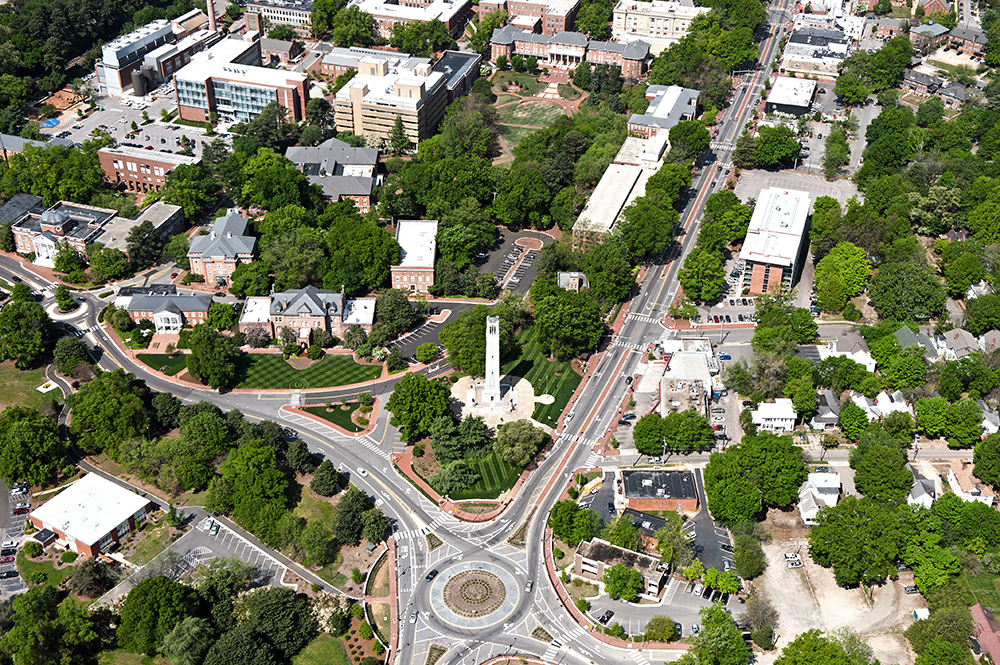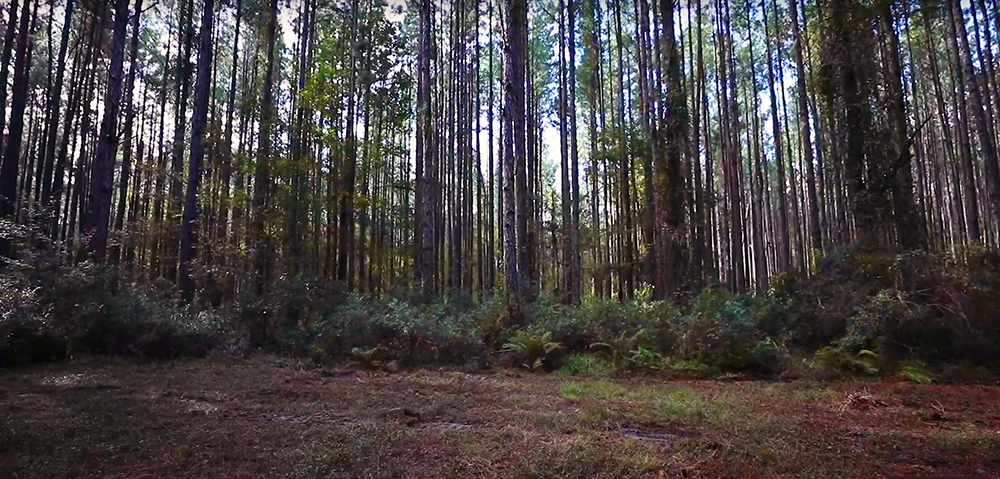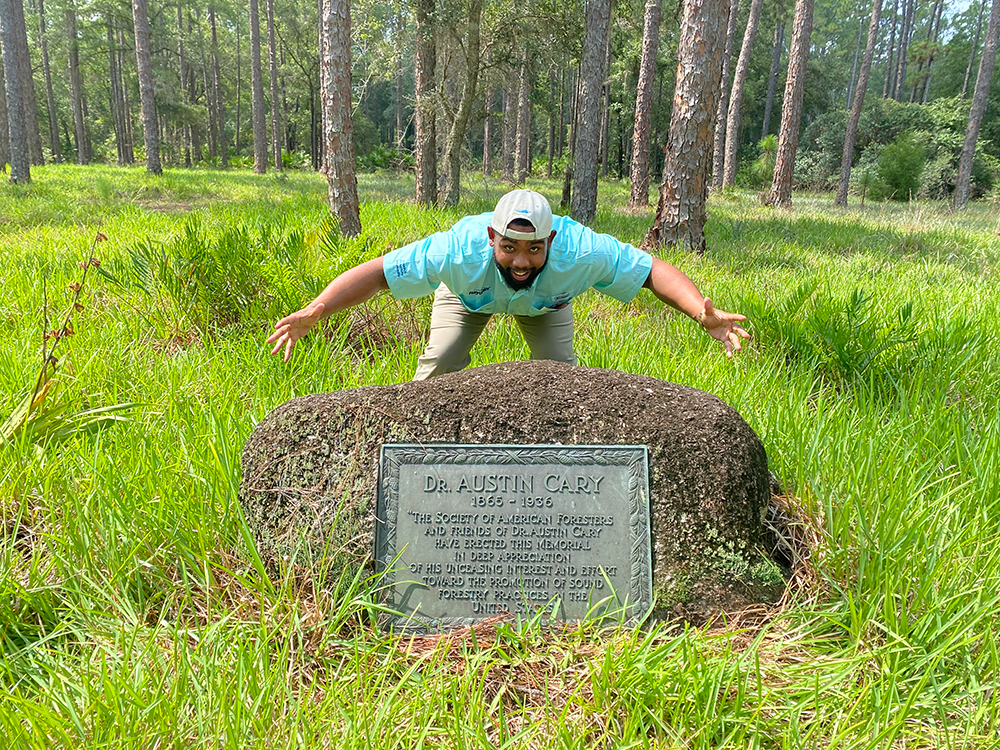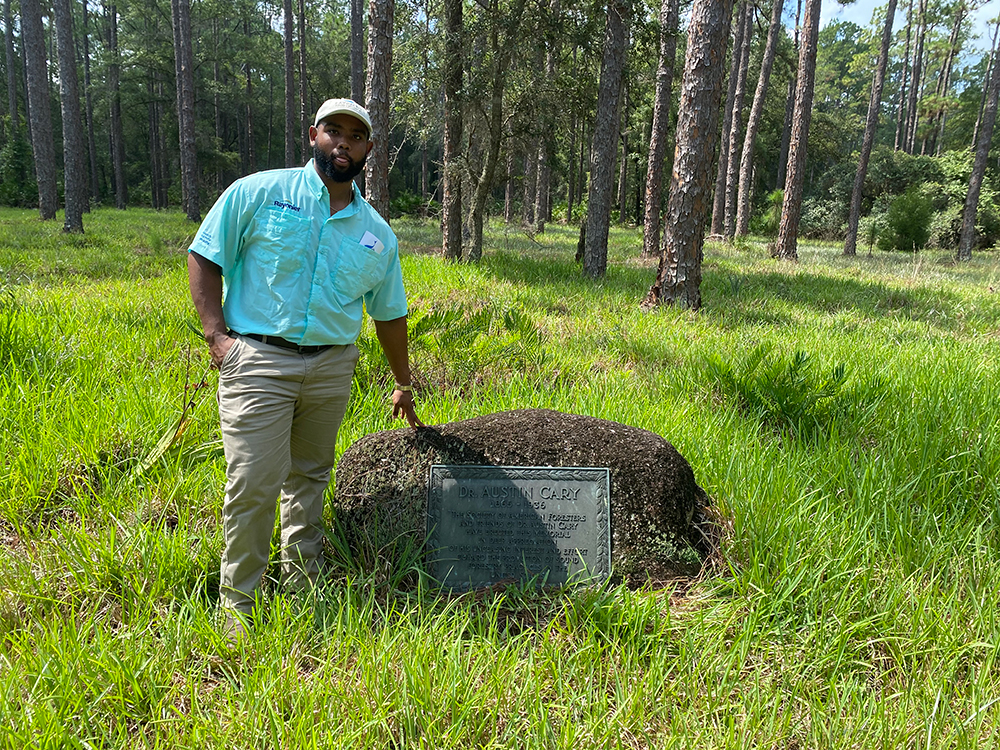North Carolina State graduate student Austin Cary gives us an inside look at his Rayonier mentorship experience through his school’s new National Needs Fellowship. The program is designed to bring more people of color into forestry.
Throughout the summer of 2021, North Carolina State graduate student Austin Cary experienced the forestry industry firsthand as a Rayonier mentee. Austin, who hails from Memphis, Tenn., came to Rayonier via the National Needs Fellowship (NNF), a program developed by the National Institute of Food and Agriculture to train the “next generation of policy makers, researchers, and educators in the food and agricultural sciences.”
About the National Needs Fellowship Program at NC State
The NNF launched on the campus of North Carolina State in fall 2020. The fellowship is geared toward students of color pursuing graduate degrees in Forestry within the College of Natural Resources at NC State University.
Assistant professor and NNF Program Principal Investigator Dr. Zakiya Leggett was instrumental in bringing the program to NC State. It’s important, she says, to continue to focus on diversity in the field of forestry.
“We know forestry is extremely underrepresented with people of color,” she says.
Having a diverse cohort of colleagues and mentors goes a long way toward making forestry a more welcoming place for underrepresented groups.

Rayonier is one of about 40 companies that submitted one-page project descriptions seeking to serve as one of the program’s career partners. Students were able to choose the project that seemed like the best fit for their internship and research needs. Zakiya kept the company names off each of the proposals before presenting them to the students.
“I talk [with students] about the topic areas in each proposal instead of mentioning the company name,” she says. “I want them to choose topics based on their interests and career goals.”
Austin selected Rayonier because he was attracted to the projects.
“I have been learning a lot about pine silviculture throughout my years of education in forestry, and I felt this project wouldn’t be too overwhelming and it also intrigued me to work with a species I never really have gotten a chance to study up close due to its geographic range,” he says.
We asked Austin to tell us more about the Fellowship and his experience with Rayonier.
Rayonier: How did you learn about the National Needs Fellowship at NC State?
Austin: I learned about the National Needs Fellowship at NC State through two faculty members here at NC State: Dr. Zakiya Leggett and Sam Cook. I originally came to NC State through a dual degree program partnership with Tuskegee University and NC State University. After being in Raleigh for my senior year of undergrad, it felt natural to stay here and pursue my master’s degree here as well.
R: What were some of your responsibilities at Rayonier?
AC: I was an intern in the research department in the Yulee, Florida, office. My main emphasis was to gather data for my thesis project. My project centered around the effects of silviculture operations in slash pine plantations. I was continuing a study that was already started by the research department. When I wasn’t collecting and analyzing data, I was shadowing and assisting the land management team. When I was with the land management team, I was exposed to the ways that Rayonier plans future timber harvests and why that was important.

R: What have you learned by working closely with a company that would have been hard to learn in class alone?
AC: I learned about why certain decisions are made in the forest. In my classes, they tend to speak on how operations are theoretically done based on previous research and other data, but when I am working for a company, I can see hands-on how operations are done. Another thing that I have learned is that different climates affect how things are handled and not everything is done the same way in each forest.
R: How has Rayonier contributed to your goal of a career in forestry?
AC: I feel like Rayonier taught me tools that will help me with my career development. Rayonier has contributed a lot towards my goal of a career because they gave me an insight on how a successful forestry company operates, how to pay attention to details and how to properly conduct research that is concise and understandable. I was able to work in the field and in the office for periods of time this summer and I thought that was unique. I got an opportunity to see how different departments operate and gather information and how certain departments collab together to solve a bigger question.
R: What advice do you have for students considering a career in forestry?
AC: My advice would be to research and reach out to different avenues of forestry that you might want to pursue. Because forestry is so broad, anything that you would like to do from land management, to analytics, to real estate, etc. is all included under the forestry realm. I would also say to try to get out of your comfort zone a little and try to ask many questions of your teachers as well. They can connect you to different professionals that have knowledge on many subjects.

Are you interested in joining us in the forestry industry?
You can learn more at these links:
- To learn more about the National Needs Fellowship, visit the USDA’s educational programs and scholarships web page about it.
- To learn more about NC State’s forestry program, visit the website for their Department of Forestry and Enviornmental Resources.
- To learn more about working with Rayonier, visit our careers page.
- And to learn more about becoming an intern with Rayonier, visit our Internships page.






Leave a Comment